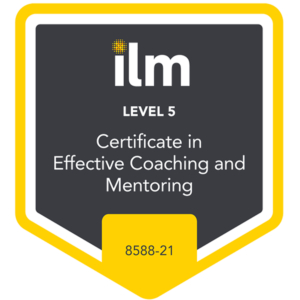‘Being resilient’ is more practical than many people realise. It is often assumed to be a feeling or a state of being. However, resilient people are those who actively adopt strategies to set about problem solving when the need arises. Resilience is the difference between being stopped in one’s tracks because of the enormity of the perceived challenge, and confronting it head on with a can-do attitude. Catastrophic thinking and overwhelm happen when we perceive the challenge ahead as insurmountable. And this is the key point: it is about perception.
To be resilient a person is persistent in their insistence that they will be able to find and deliver a solution. Whether there be a readiness to engage in trial and error, think creatively, horizon scan and research, or step back in order to analyse the problem from multiple angles, what will be common to all approaches is an accompanying dogged persistence that they are resourceful enough and equal to the challenge.
“I might not be more skilled than other scientists, but I have the persistence of a mule.” Albert Einstein
Therefore, when we are resilient, we enact a combination of believing that a solution can be found, and a belief that we have the resources to find and deliver that solution.
Resilience does have significant repercussions for your sense of identity and self-worth. When you are resourceful in your own right, you know that you do not need another person to solve your problems for you. You can own the problem and the solution. Knowing this can enable an individual to feel buoyed up and energised, ready for action when a challenge presents itself.
When the resilient person has exhausted all of the resources available and the problem remains unsolved, they take satisfaction in their efforts and value the learning that can be taken from the endeavour.
Key Strategy
Complete this adapted SWOT analysis so that you can create a detailed portrait of your own capacity to be resilient.
- Think of a time when you have been resilient. You will have kept going to the end when there were times when it was hard to keep going, or you continued to work through problem after problem after problem until the end.
- Also, think of a time when you gave up too early, or didn’t start something you would have liked to have done, or deferred a problem to someone else rather than owning it yourself.
Strengths: What are the strengths you have available to you to solve problems and keep going?
Weaknesses: What have you been saying to yourself or listening to when you have given up too early and not persisted?
Opportunities: What learning and wisdom are available to you if you keep going and persist when you are truly challenged?
Threats: What gets in the way of you being persistent? And what will you tell yourself to get past these obstacles in future?
In order to become more resilient, it is useful to be clear about the following:
- Know what worked for you in the past and kept you moving forward when faced with a challenging problem,
- Know the resources you have within in that you can utilise,
- Know how you can view a problem as solvable e.g. you are aware that…
- You learn what is needed when you spend enough time exploring the problem,
- You can figure out a solution if you keep trying different ways,
- You are strong and you do step up when you need to,
- Your instincts can be relied upon and you will know what to do when the unexpected occurs
- People can rely on you to give your best for as long as is needed
- Know how you can view problems positively e.g.
- Know that you enjoy a puzzle and a problem can be labelled a ‘puzzle’
- Know that you like the feeling when you accomplish something that was difficult,
- Know that you are capable of much more than you think you are,
- Know that dealing with prolonged difficulty is an opportunity to find out about yourself.
Finally, when you have persisted and seen something challenging through to the end, when you have been resilient, it is vital that you pause and take stock of what the achievement means to you. Recognising that the effort was worth it, that you are glad you kept going, sets you up to be persistent and resilient when you are faced with the next challenge. It is also important to reflect on how you solved the problem so that effective strategies and learning can be utilised again in the future. Together, these two important aspects of feedback build your sense of resourcefulness and belief that you can come through difficult problems.
Coaching can help you to explore your level of resilience, the strategies and resources available to you, and how you can become even more resilient in the future. Coaching around resilience impacts positively on self-esteem, confidence and general wellbeing. If you want to take your resilience to the next level, why not book a clarity call with Alison at Make It So Coaching to find out more?






